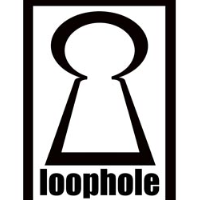With Support of Obama Administration, House NSA Surveillance Reform Bill Includes Gaping Loopholes
 (graphic: Affordable Housing Institute)
(graphic: Affordable Housing Institute)
Lawmakers in the U.S. House of Representatives claim they have addressed the problems of the National Security Agency’s (NSA) notorious bulk collection of data, made so famous last year by whistleblower Edward Snowden. But the legislation adopted to end this controversial practice contains huge loopholes that could allow the NSA to keep vacuuming up large amounts of Americans’ communications records, all with the blessing of the Obama administration.
Dubbed the USA Freedom Act, the bill overwhelmingly approved by the House (303 to 121) was criticized for not going far enough to keep data out of the hands of government.
“This so-called reform bill won’t restore the trust of Internet users in the U.S. and around the world,” Cynthia Wong, senior Internet researcher at Human Rights Watch (HRW), said. “Until Congress passes real reform, U.S. credibility and leadership on Internet freedom will continue to fade.”
Julian Sanchez, a researcher at the Cato Institute, a libertarian think tank, warned that the changes could mean the continuation of bulk collection of phone records by another name.
“The core problem is that this only ends ‘bulk’ collection in the sense the intelligence community uses that term,” Sanchez told Wired. “As long as there’s some kind of target, they don’t call that bulk collection, even if you’re still collecting millions of records…If they say ‘give us the record of everyone who visited these thousand websites,’ that’s not bulk collection, because they have a list of targets.”
HRW says the bill, which now goes to the Senate for consideration, contains ambiguous definitions about what can and cannot be collected by the agency.
For instance, an earlier version more clearly defined the scope of what the NSA could grab under Section 215 of the Patriot Act, which has formed the legal basis for gathering the metadata of phone calls.
“Under an earlier version of the USA Freedom Act, the government would have been required to base any demand for phone metadata or other records on a “specific selection term” that “uniquely describe[s] a person, entity, or account.” Under the House version, this definition was broadened to mean “a discrete term, such as a term specifically identifying a person, entity, account, address, or device, used by the government to limit the scope” of information sought,” according to Human Rights Watch.
“This definition is too open-ended and ambiguous to prevent the sort of creative interpretation by intelligence agencies that has been used to justify overbroad collection practices in the past,” the group claims.
The New America Foundation’s Open Technology Institute is similarly disappointed in the final House bill. “Taken together,” the Institute wrote, “the changes to this definition may still allow for massive collection of millions of Americans’ private information based on very broad selection terms such as a zip code, an area code, the physical address of a particular email provider or financial institution, or the IP address of a web hosting service that hosts thousands of web sites.”
-Noel Brinkerhoff
To Learn More:
US Senate: Salvage Surveillance Reform (Human Rights Watch)
NSA Reform Bill Passes the House—With a Gaping Loophole (by Andy Greenberg, Wired)
Lawmakers Seek to Prevent NSA from Weakening Online Encryption via Reform Bill Amendment (by Steve Straehley, AllGov)
The Disturbing Clause not Covered by Proposed NSA Reform (by Noel Brinkerhoff, AllGov)
4 Proposals to Reform NSA Human Rights Violations: Feinstein=Worst; Leahy-Sensenbrenner=Best (by Steve Straehley, AllGov)
- Top Stories
- Unusual News
- Where is the Money Going?
- Controversies
- U.S. and the World
- Appointments and Resignations
- Latest News
- Trump Renames National Football League National Trump League
- Trump to Stop Deportations If…
- Trump Denounces World Series
- What If China Invaded the United States?
- Donald Trump Has a Mental Health Problem and It Has a Name






Comments